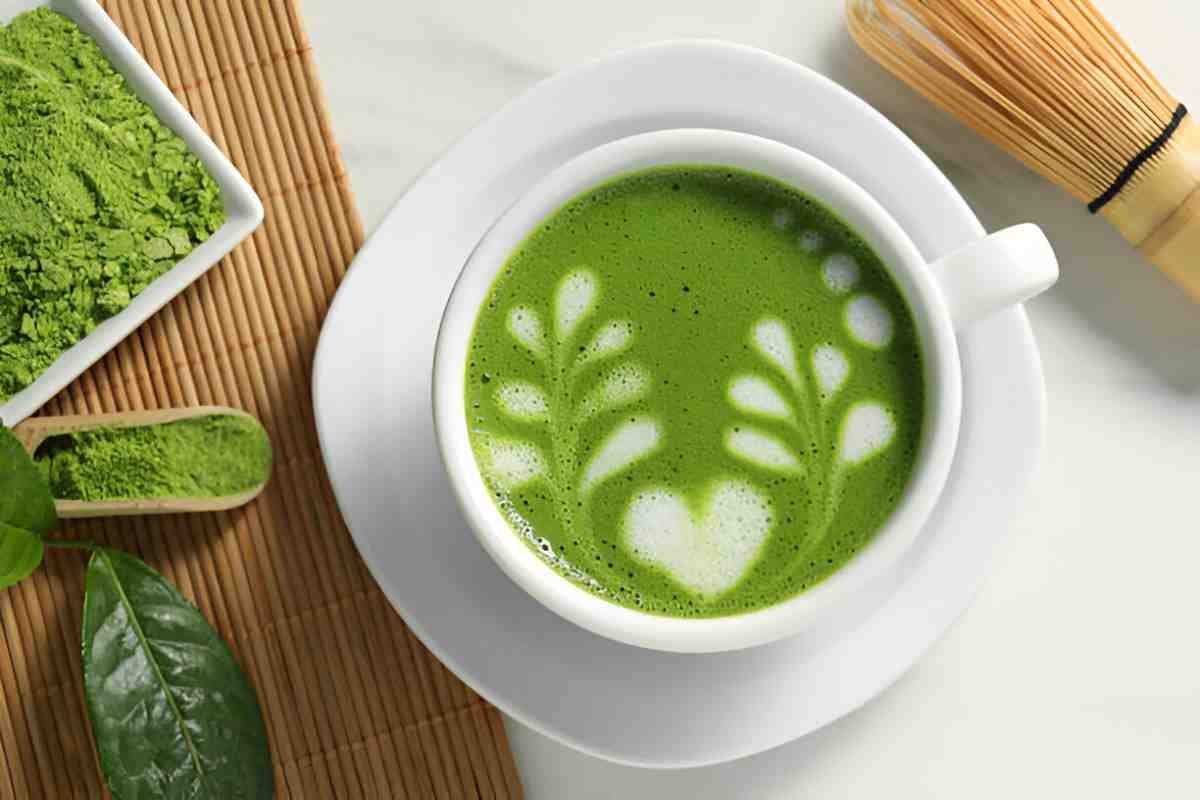Matcha green tea has been cherished for centuries in traditional Japanese culture for its vibrant green color, unique flavor, and potent health benefits. Made from finely ground green tea leaves, matcha is not only a delicious beverage but also a nutritional powerhouse. In this article, we delve into the nutritional values, key health benefits, potential therapeutic uses, cautions, and ways to incorporate matcha green tea into your diet.
Summary Table
| Aspect | Details |
|---|---|
| Nutritional Values | Antioxidants (catechins), Caffeine, L-Theanine, Vitamins (A, C, E, K), Minerals (Potassium, Calcium, Magnesium) |
| Key Health Benefits | Antioxidant Powerhouse, Brain Health, Heart Health, Weight Management, Detoxification |
| Potential Therapeutic Uses | Cancer Prevention, Diabetes Management |
| Cautions | Caffeine Sensitivity, Heavy Metal Contamination |
| Incorporation into Diet | Traditional Tea, Matcha Latte, Smoothies, Baking |
Nutritional Values
Matcha green tea is packed with essential nutrients, including:
- Antioxidants: Matcha is rich in catechins, a type of antioxidant that helps fight oxidative stress and inflammation in the body.
- Caffeine: Matcha contains caffeine, which can provide a natural energy boost and enhance mental alertness.
- L-Theanine: This amino acid found in matcha promotes relaxation and helps counteract the stimulating effects of caffeine.
- Vitamins and Minerals: Matcha is a good source of vitamins A, C, E, and K, as well as minerals such as potassium, calcium, and magnesium.
Key Health Benefits
1. Antioxidant Powerhouse
The high concentration of catechins in matcha makes it a potent antioxidant, protecting cells from damage caused by free radicals and reducing the risk of chronic diseases.
2. Brain Health
The combination of caffeine and L-theanine in matcha has been shown to enhance cognitive function, improve attention, and promote a state of calm focus.
3. Heart Health
Regular consumption of matcha may help lower blood pressure, reduce LDL cholesterol levels, and decrease the risk of heart disease.
4. Weight Management
Matcha green tea has been associated with increased metabolism and fat burning, making it a beneficial addition to a weight loss or weight management regimen.
5. Detoxification
The chlorophyll content in matcha helps support the body’s natural detoxification processes, aiding in the removal of toxins and heavy metals from the body.
Potential Therapeutic Uses
Cancer Prevention
Some studies suggest that the catechins in matcha may have anticancer properties, potentially reducing the risk of certain types of cancer.
Diabetes Management
Matcha green tea may help regulate blood sugar levels and improve insulin sensitivity, making it a valuable addition to a diabetic-friendly diet.
Cautions
Caffeine Sensitivity
Individuals sensitive to caffeine should consume matcha in moderation to avoid side effects such as insomnia, jitteriness, or increased heart rate.
Heavy Metal Contamination
Some matcha products may contain traces of heavy metals due to environmental pollution. It’s essential to choose high-quality, organic matcha from reputable sources to minimize the risk of contamination.
How to Incorporate Matcha Green Tea into Your Diet
- Traditional Tea: Brew matcha powder with hot water and whisk until frothy for a traditional matcha tea.
- Matcha Latte: Mix matcha powder with steamed milk of your choice for a creamy and comforting beverage.
- Smoothies: Add matcha powder to your favorite smoothie recipe for an extra nutritional boost.
- Baking: Incorporate matcha powder into baked goods such as cookies, cakes, and muffins for a unique flavor and color.
Incorporating matcha green tea into your daily routine can offer a wide range of health benefits, including antioxidant protection, improved brain function, heart health support, and weight management. However, it’s essential to be mindful of caffeine sensitivity and potential heavy metal contamination when choosing matcha products. By enjoying matcha as part of a balanced diet, you can harness its nutritional power to enhance your overall well-being.





